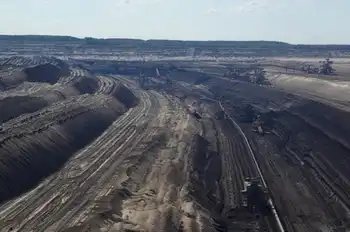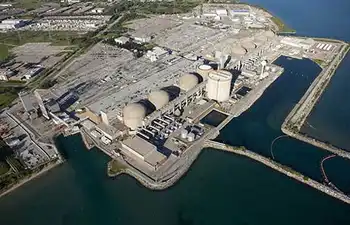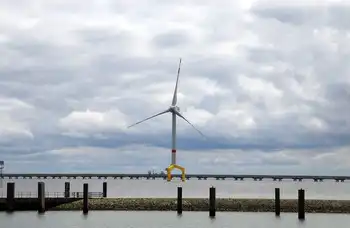Westinghouse withdraws from Ontario reactor bidding
TORONTO, ONTARIO - U.S. nuclear giant Westinghouse Electric Co. LLC is taking itself out of the running to build new reactors in Ontario, raising concerns that a bidding process created by the provincial government to get the best deal for electricity consumers has become decidedly uncompetitive.
The government wants a company to design and build reactors on a so-called turnkey, fixed-price basis in the hopes of avoiding the mistakes of past nuclear projects, which saddled Ontarians with billions of dollars in debts. But sources in the nuclear industry said Westinghouse officials want to just supply technology rather than assume responsibility for a turnkey operation because of concerns about how much of the risk the company would be asked to assume for any cost overruns and delays.
A spokeswoman for Infrastructure Ontario, the provincial agency responsible for overseeing the government's $26-billion plan to build new reactors, insisted that Westinghouse remains "actively engaged in the process."
However, George Smitherman, Ontario's Minister of Energy and Infrastructure, confirmed that Westinghouse would prefer to play a more modest role.
"It seemed from the beginning that was a company that was more interested in supplying their technology than in actually building their technology," Mr. Smitherman told The Globe and Mail.
The Ontario government plans to build the province's first new reactors in more than two decades at the Darlington nuclear station in Clarington, a fast-growing community about 80 kilometres east of Toronto. The sources said the public interest is best served with a competitive process, but only two companies - Crown-owned Atomic Energy of Canada Ltd. and France's Areva Group - are in the running to provide the complete, turnkey package.
"If they're down to two, where's the competition?" asked an executive who requested not to be named.
Greenpeace energy campaigner and nuclear opponent Shawn-Patrick Stensil noted that another potential bidder, U.S. nuclear giant GE-Hitachi Nuclear Energy Inc., also decided last spring not to bid on the project. The fact that the government has twice delayed the deadline for bids - to an unspecified date early in 2009 - shows that its push to build new reactors has hit a snag at a time when the costs for such projects are escalating, Mr. Stensil said.
"It doesn't look like they have a good chance of insulating the Ontario ratepayer from the financial cost of building a reactor," he said.
Mr. Smitherman said he is optimistic that the government will complete its plan to meet the province's electricity needs over the next two decades.
"At the end of the day, it takes one (company) to build it," he said.
Bryne Purchase, a former deputy energy minister in Ontario who is director of the energy and environment program at Queen's University, said AECL and Areva are going head to head.
"It's not as fulsome a competition but it is still a competition," he said.
While Areva is serious about winning, Dr. Purchase questioned whether the Harper government is equally committed, or whether it is looking for political cover to get out of the nuclear business.
"If they win, they're in the business," he said. "If they don't Ontario would have put a bullet in the head" of AECL.
Ontario and Ottawa are each waiting for a signal from the other about its commitment to AECL and the company's Candu technology. Ontario wants to ensure that the federal government will remain the principal shareholder and backstop AECL financially. Ottawa is hoping for a positive result in the Ontario bid to increase the long-term value of AECL's business.
The Harper government is also in the throes of deciding whether to sell AECL. Sources say no decision is imminent, but several key ministers, including Finance Minister Jim Flaherty, are said to be in favour of an outright sale.
Industry sources said nuclear vendors are concerned about the amount of risk they would have to take on should they win the project, and are particularly concerned about cost overruns that could arise if federal regulators take longer than anticipated to approve the reactor's design.
Dr. Purchase said Ontario is apparently signalling it would be willing to assume more of the risk on cost overruns than it had originally intended.
"They're getting push-back from everyone on that," he said. "There is so much uncertainty in the world right now that nobody wants to take on more risk than they have to."
Related News

Investor: Hydro One has too many unknowns to be a good investment
TORONTO - Hydro One may be only half-owned by the province on Ontario but that’s enough to cause uncertainty about the company’s future, thus making for an investment risk, says Douglas Kee of Leon Frazer & Associates.
Since its IPO in November of 2015, Hydro One has seen its share of ups and downs, mostly downs at this point. Currently trading at $19.87, the stock has lost 11 per cent of its value in 2018 and 12 per cent over the last 12 months.
This year has been a turbulent one, to say the least, as newly elected Ontario premier Doug Ford…




